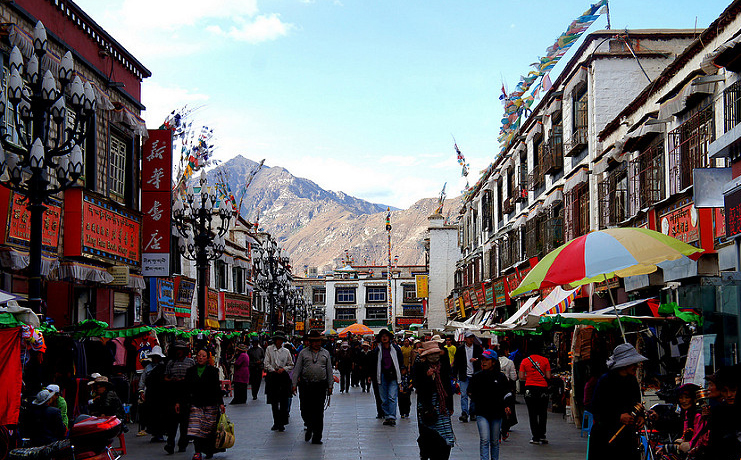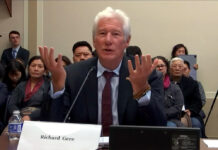
(TibetanReview.net, Jan12’19) – China is to open Tibet wider to the outside world not by relaxing the special permit system but only by speeding up the process a bit for overseas tourists and by enhancing interconnectivity in terms of transport and business infrastructure.
Tibet will build “a big routeway of openness” towards South Asia, the official Xinhua news agency Jan 10 quoted Qi Zhala, chairman of the regional government, as saying in his government work report delivered at the second session of the 11th People’s Congress of Tibet Autonomous Region (TAR).
He has said up to five export bases would be developed in 2019 with the aim to increase foreign trade by at least 10 percent and border trade by at least 30 percent.
He has said work on ongoing projects for this purpose in the border port towns of Gyirong (Tibetan: Kyirong) and Zham (Dum) as well as in the regional capital Lhasa will continue.
On tourism, the TAR government aims to attract 40 million visitors this year, up from last year’s 33.69 million, and to increase the number of overseas pilgrims by 50 percent.
For this purpose, the current 15-day waiting period for a special permit, in addition to the Chinese visa required for non-Chinese visitors to the region, will be halved this year. These permits are usually granted for tourists, provided they travel with approved tour companies, but rarely, if ever, for journalists and diplomats.
Although not officially stated, China does not allow independent journalists and diplomats to visit Tibet except under special arrangements carried out with strict government supervisions in order to severely restrict what they get to see and hear.
US President Donald Trump recently signed the Reciprocal Access to Tibet Act, demanding access for American officials and journalists to Tibet to the same extent as that enjoyed by their Chinese counterparts to the USA. Beijing denounced it as interference in China’s internal affairs.
Qi Zhala also pledged that the government in Tibet would “take a clear-cut stance in the fight against the Dalai clique”, reported the Reuters Jan 11.
“We must improve the monastery management and service mechanisms to defend the bottom line of Tibetan Buddhism not being manipulated by foreign forces,” he was quoted as saying.
He has made it clear that management of religious activities must prevent another “upsurge” of religion.





